Polycystic Ovary Syndrome
Most women with PCOS grow many small cysts on their ovaries & so that, it is called polycystic ovary syndrome. The cysts are not harmful but lead to hormone imbalances.
In India, Polycystic Ovarian Syndrome (PCOS) is one of the most common hormonal disorders affecting women. Just about 10 per cent of the women in India are affected with PCOS. Women with PCOS have various symptoms which may be cosmetic, such as acne, facial hair and pigmentation, gynaecological such as irregular periods, infertility and repeated pregnancy loss, or hormonal such as unusual weight gain, insulin resistance and diabetes. PCOS is not a disease but a syndrome of numerous symptoms and signs and every woman might not have all the possible symptoms.
Polycystic ovary syndrome is due to female sex hormones imbalance.
It is seen in as many as 25 - 30% of young women.
It can cause irregular or delayed periods and make it difficult to get pregnant..
If it is not treated, over time it can lead to serious health complications, such as diabetes and heart diseases.
Generally the symptoms begin in the teen years & the symptoms are mostly cosmetic as they get bothered by the acne, weight gain and facial hair.
In married women, the PCOS frequently manifests as inability to conceive. In this situation, the ovulation may not occur regularly, and as the egg does not come out each month, the chance of pregnancy is also low down.
The allopathic doctor may often prescribe drugs which are used in diabetic patients, as these drugs are insulin sensitizers and get better the insulin insensitivity, which is the main problem behind PCOS. So a malfunction of the body's blood sugar control system is frequent in women with PCOS, who often have insulin resistance and elevated blood insulin levels.The main cause of PCOS is insulin resistance.
If it is not treated, over time it can lead to serious health complications, such as diabetes and heart diseases.
What happens in PCOS?
Normally, the ovaries make a minute amount of male sex hormones that is called androgens. In PCOS, they start making somewhat more androgens. This may cause you to stop ovulating, get acne, and grow extra facial and body hair.
Symptoms Of Polycystic Ovary Syndrome:
01.The symptoms of polycystic ovary syndrome (PCOS) usually become apparent in your teens or early twenties.
02.Not all women with PCOS have all of the symptoms. Each symptom can vary from mild to severe.
03.In many women, the only symptoms are menstrual problems or a failure to conceive.
Common symptoms of polycystic ovary syndrome:
01. Irregular periods or total lack of periods.
02. Difficulty getting pregnant, recurrent miscarriage.
03. Excessive hair growth that is called hirsutism (usually on the face, chest, back or buttocks).
04. Thinning hair and hair fall from the head.
05. Acne, Oily skin.
06. Depression and mood swinging.
07. Multiple, small cysts in the ovaries.
Causes of polycystic ovary syndrome
The accurate cause of polycystic ovary syndrome (PCOS) is unknown, but it's thought to be related to irregular hormone levels.
Resistance to insulin-
Insulin resistance means the body’s tissues are resistant to the effects of insulin. The body therefore has to produce extra insulin to balance.
High levels of insulin cause the ovaries to produce too much testosterone hormone, which interferes with the development of the follicles (the sacs in the ovaries where eggs develop) and prevents normal ovulation.
Insulin resistance can also lead to weight gain, which can make PCOS symptoms worse because having excess fat causes the body to produce even more insulin.
Hormone imbalance-
Many women with PCOS are found to have an imbalance in certain hormones, including:
01. Increased levels of testosterone - Also called a male hormone, although all women normally produce little amount of it.
02. Increased levels of luteinizing hormone (LH) - It stimulates ovulation, but may have an abnormal effect on the ovaries if levels are too high.
03. Low levels of sex hormone binding globulin (SHBG) – It helps to reduce the effect of testosterone.
04. Increased levels of prolactin (only in some women with PCOS) _ It stimulates the breast glands to produce milk in pregnancy.
The exact cause why these hormonal changes occur is not known. The changes may also be caused by the resistance to insulin.
Genetic:
Polycystic ovary syndrome (PCOS) sometimes runs in families. If any relatives, such as your mother, sister or aunt, have PCOS then the possibility of you developing it is often increased.
This suggests there may be a genetic link to PCOS, although exact genes associated with the condition have not yet been identified.
DO YOU HAVE PCOS ?
Sometimes it is difficult to detect PCOS due to its confusing and unclear symptoms.
These Questions will help you find out whether you are suffering from PCOS or not.
Are you getting overweight?
Are you carrying excessive fat around your belly?
Are your periods irregular?
Do you menstruate less than 9 times a year?
Do you have to take hormonal pills to bring on your periods?
Are you not able to conceive for more than 6 months?
Do you suffer from abnormal hair growth around chin, neck or chest area?
Do you often have acne/breakouts?
Are you facing the concern of discoloured or darker skin?
Do you feel depressed/ moody often?
If You think your answer is YES to most of the questions, there is high probability that you have PCOS.
TREATMENT
Natural Treatment For PCOS- (Lifestyle Changes)
Exercising 30 minutes a day for at least 5 days a week can make a huge difference. Walking is the best activity. There are many benefits of exercise such as weight loss, hormone balance, relieve stress, fights depression. Weight reduction of even a few percent has clinical benefits. Weight management by dieting and exercise is recommended to all women with PCOS
Diet: Low fat, high fiber, plant based diet that promotes weight loss & hormonal balance.
HOMOEOPATHIC TREATMENT
Polycystic Ovarian Syndrome is curable with the Homeopathic mode of treatment. Homeopathic treatment for polycystic ovarian syndrome is very safe and free from any side effect.
Specialized HOMOEOPATHIC medicines are very effective in the Polycystic Ovary Syndrome Management . It works by blocking the effects of "male hormones" such as testosterone and suppresses production of these hormones by the ovaries. It is completely plant-based and safe medicines with no side effects.
Allopathic Treatment
To Use Or Not To Use Oral Contraceptives/Birth Control Pills For PCOS Management-
In PCOS, ovulation does not arise regularly, which prevents the rise and drop of progesterone hormone, which is responsible for causing a woman's menstrual period. Instead, the uterine inside layer is not shed and is exposed to estrogen hormone for a longer period of time causing it to grow much thicker than normal. Over the time, lack of exposure to progesterone may cause endometrial hyperplasia (thickness), which in rare cases can lead to endometrial cancer. Oral contraceptives pills regulates the menstrual cycle by providing the progesterone, causing the uterine inside layer to be shed frequently and reducing the risk of endometrial hyperplasia. The effects of contraceptive pills disappear once the patient stops the intake of these pills.
Diabetes Medications: The medicine metformin (Glucophage) is normally used to treat type 2 diabetes. Metformin affects the way insulin controls blood glucose (sugar) and lowers testosterone production. It slows the growth of abnormal hair and after a few months of use, may help ovulation to return. But some of the women using Metformin have reported experiencing abdominal discomfort, cramps, nausea, and diarrhoea.
Surgery: "Ovarian drilling" is a surgery that may raise the chance of ovulation. It's sometimes used when a woman does not react to fertility medicines. This surgery can lower male hormone levels and help with ovulation. But these effects may only last a few months. This treatment doesn't help with loss of scalp hair or increased hair growth on other parts of the body.
What We Are
Dr. Vinod Kala is a leading Homoeopathic practitioner, practices in the city of joy Kolkata(west bengal) India. He passed his BHMS from National Institute of Homoeopathy (Govt. of India, under ministry of health & family welfare) Kolkata, West Bengal. He has done his Post Graduate diploma in Preventive & Promotive Health Care from Apollo Hospitals Educationals & Research Foundation, Jubilee Hills, Hyderabad, India.

OUR SPECIFICATIONS

Polycystic Ovary Syndrome
Most women with PCOS grow many small cysts on their ovaries & so that, it is called polycystic ovary syndrome. The cysts are not harmful but lead to hormone imbalances.

Polycystic Ovary Syndrome
PCOS is common, affecting as many as 1 out of 15 women.
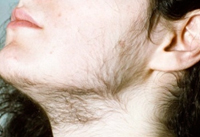
Polycystic Ovary Syndrome
Polycystic ovary syndrome is due to female sex hormones imbalance.
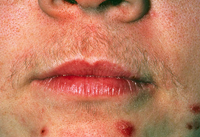
Polycystic Ovary Syndrome
It can cause irregular or delayed periods and make it difficult to get pregnant..
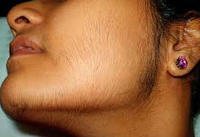
Polycystic Ovary Syndrome
It is seen in as many as 25 – 30% of young women.
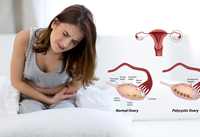
Polycystic Ovary Syndrome
If it is not treated, over time it can lead to serious health complications, such as diabetes and heart diseases.Natural treatment to cure PCOS and PCOD.
Testimonials
"Lorem Ipsum is simply dummy text of the printing and typesetting industry. Lorem Ipsum has been the industry's standard dummy text ever since the 1500s, when an unknown printer took a galley of type and scrambled it to make a type specimen book. It has survived not only five centuries, but also the leap into electronic typesetting
"Lorem Ipsum is simply dummy text of the printing and typesetting industry. Lorem Ipsum has been the industry's standard dummy text ever since the 1500s, when an unknown printer took a galley of type and scrambled it to make a type specimen book. It has survived not only five centuries, but also the leap into electronic typesetting
Lorem Ipsum is simply dummy text of the printing and typesetting industry. Lorem Ipsum has been the industry's standard dummy text ever since the 1500s, when an unknown printer took a galley of type and scrambled it to make a type specimen book. It has survived not only five centuries, but also the leap into electronic typesetting
Lorem Ipsum is simply dummy text of the printing and typesetting industry. Lorem Ipsum has been the industry's standard dummy text ever since the 1500s, when an unknown printer took a galley of type and scrambled it to make a type specimen book. It has survived not only five centuries, but also the leap into electronic typesetting
Our Treatment

BEST TREATMENT FOR PCOS
In India, Polycystic Ovarian Syndrome (PCOS) is one of the most common hormonal disorders affecting women.
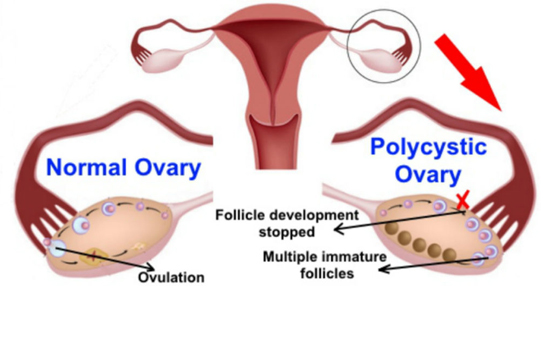
NATURAL TREATMENT PCOS
Exercising 30 minutes a day for at least 5 days a week can make a huge difference. Walking is the best activity.






